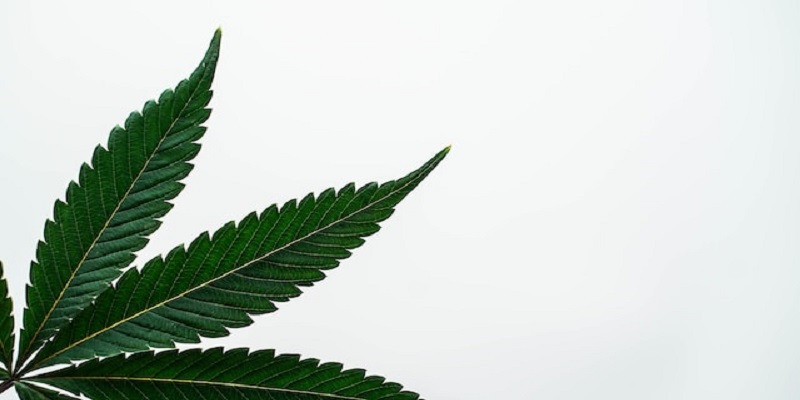
CBG is gaining popularity after CBD, and users are impressed with its potential therapeutic effects. But, as a chemical compound, CBG has some prominent side effects that you should always consider before taking it. Today, we will discuss some significant CBG side effects that might help you understand whether this compound suits you!
What is CBG?
Cannabigerol, often known as CBG, is one of the hundreds of cannabinoids that cannabis plants produce and may have health advantages. Even though it only occurs in trace amounts in mature cannabis plants (less than 0.1%), CBG is a significant cannabinoid since it is the building block for many other cannabinoids, including THC and CBD.
How does CBG produce effects on the body?
Endocannabinoid system (ECS) interactions are how CBG functions. Numerous endocannabinoids, enzymes, and receptors are part of this system. The CB1 and CB2 receptors are engaged by endocannabinoids, which the body naturally produces. The endocannabinoid manages physiological processes, including appetite, memory, and sleep, which also helps keep the body balanced. As opposed to the immune system, which has CB2 receptors, the central nervous system has CB1 receptors. Anandamide is increased when CBG interacts with the CB1 and CB2 receptors, activating them. A neurotransmitter called anandamide affects many different processes, including pain and motivation. CBG raises levels of anandamide after interacting with the CB1 receptor. Specifically, the 5HT1A receptor, CBG, has an impact on serotonin receptors as well. This receptor controls levels of serotonin.
Potential benefits of using CBG
Appetite Stimulation
Research on mice demonstrates that animals given CBG consumed nearly twice as much food as the control group without displaying any adverse side effects.
Antibacterial Properties
CBG appeared to have the most significant promise as an antibiotic among all the main cannabinoids, particularly against methicillin-resistant Staphylococcus aureus (MRSA).
Anti-Tumorigenic Properties
Scientists have found that CBG inhibits the growth of cancer cells in mice with colon cancer by interacting with the TRPM8 receptor, also known as the “menthol receptor,” which is involved in the growth and proliferation of some cancer cells.
Neuroprotective Effects
Peer-reviewed research suggests that CBG’s anti-inflammatory actions and antioxidant qualities may shield neurons (brain cells) in mice from damage brought on by protracted inflammation, oxidative stress, or trauma.
Is CBG safe?
It is still being determined how long-term use of CBG will affect how the importance interacts with the body. However, high doses of CBG have been tolerated satisfactorily in experiments using mouse subjects. Taking CBG is safe for most healthy people because no harmful side effects have been reported thus far.
Potential CBG Side effects
CBG might cause adverse effects like any other product when taken in excess. Knowing a product’s side effects in advance enables you to control your routine more successfully. Its adverse effects include:
Diarrhoea
According to Ay et al. (2018), diarrhoea is a severe adverse effect of any CBG product. The cause is a signal from your digestive system that you have consumed too much of the substance and cannot tolerate it. This is why your stomach may or may not respond to the intake. Another explanation is that if your body is unfamiliar with a product, it may react unexpectedly in the stomach. Avoiding CBD products like oils and edibles, which come into touch with the digestive system, is a great way to combat this adverse effect.
Fatigue
Another typical negative effect of ingesting CBG is fatigue. Nearly nine out of twelve are impacted. Most CBD users do so to treat sleeping issues like insomnia. Some users cited tiredness as a positive side effect of CBG because it demonstrated the efficacy of the substance. It is not advised to use higher doses of CBG because they could make you sleepy and tired, hindering your productivity. It makes sense to take CBG while you sleep to relax if you get tired.
Alterations in appetite
The majority of users have noted a change in appetite after starting CBG. Various substances are used to make CBG products. Some may increase hunger, while others may suppress it.
Dry mouth
CBG and the majority of cannabis products all contribute to dry mouth. Though many people assume it does, it does not represent dehydration. The ability of their mouths to produce saliva may be affected by taking CBG, which is why dry mouth may occur. Drink more water or wait until it ultimately leaves your system.
Weight fluctuations
Because CBG impacts appetite, depending on how your body reacts, you can feel either more or less hungry. A weight change could result. However, since you can control your appetite, there is no need to be concerned. Just be careful not to overdo it.
How to avoid CBG side effects
- The majority of CBG side effects occur when higher doses are utilized. Because of this, one of the methods to prevent the majority of its adverse effects is to take it in the prescribed dosage and watch out for interactions with the digestive system. Always adhere to the product’s directions. Use the product as directed to see if any changes result from doing so.
- Buying your CBG products from a known and reputable brand as adulteration in CBG may cause adverse reactions in the body.
- Look for third-party lab testing from a brand you’re buying CBG.
Click Here to read about the Pros and Cons of CBG in detail.
Conclusion
It is common to have a few CBG side effects because each person’s physiology is different. One of the chemical elements found naturally in the cannabis plant is CBG. Large doses can have negative consequences such as diarrhea, fatigue, changes in appetite, and weight changes. To avoid these adverse effects, you should take it as directed, avoid taking it with other medications, and buy from a reputable brand since they sell high-quality goods. Before including it in your daily supplement regimen, always consult your doctor.
FAQs
What are CBG oil side effects?
Dry mouth, tiredness, hunger, and dry eyes were listed as adverse effects in the first comprehensive assessment of individuals using CBG to treat conditions like insomnia, chronic pain, depression, and anxiety.
What are CBD and CBG together as side effects?
When combined, CBD and CBG act as a counterbalance to one another. While CBD stimulates the enzyme that makes the body’s endocannabinoids, CBG acts directly on receptors. It’s interesting to note that CBG makes people feel sleepy when consumed alone, while CBD makes them feel energized.







